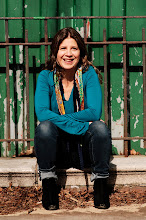I am trying my best to spend the day baking by the pool in the tropical gardens of the Key West B&B I checked into yesterday. But I can’t focus on my book-- Hemingway, in honor of his one time residence here. Nor can I simply lounge and marvel at the bananas and coconuts growing over my head. Instead, I keep climbing the wooden stairs that lead to my porch and my room, racing to close the door on the resident and aptly named cat, Meanie, who has a habit of bolting into guest rooms uninvited.
The draw is not the darkened room, a shock after the searing brightness outside. (Outside, when I close my eyes, I can see the blood vessels in my eyelids.) Nor is it the A.C., which is huffing along on high, turning the room into an ice box and making me shiver in my damp bathing suit. It’s CNN, which is broadcasting around-the-clock coverage of hurricane Katrina and the devastation it wreaked in New Orleans.
I’d woken to the news that the storm hadn’t been as bad as expected. But over the course of the day it had become clear to everyone—most of all to the residents of New Orleans—that we’d exhaled too early. Water from Lake Ponchetrain, which had been separated by the city by poorly constructed levees, was seeping into the city, submerging it. Footage of people stranded on houses, of people stuck at hotels and convention centers, of stranded cats and dogs, kept spooling, endlessly, on my T.V. set. I’m sure everyone watching was horrified. But I liked to think that it was more personal for me.
My mother is from Louisiana. Not New Orleans, though. She’s from the western-most part of the state, an area peopled not by those of French or Cajun descent, but, as my mother once put it, “farmers, white trash, and lumbermen.” It’s not considered the most interesting part of the state. At least not compared to New Orleans and Cajun country. (Who could compete with that?) Which is why, when I tell people that my mother is from there, I usually delete the details of where she’s from. I like the fact that people attribute all that cool Cajun stuff—the food, the eccentricities (thank you, Emeril)—to me.
But the truth is, the worst thing that happens to the people where my mother is from, weather-wise, tends to be the stifling summer heat and humidity and the occasional tornado, a side effect of the hurricanes that afflict the coastal regions. And the only Cajun I know of in the family was my great uncle LaRue’s wife, Corinne, who was the one who used to whip up batch after batch of gumbo (chicken, squirrel, okra), and make us drive an hour away for the best boudin, a Cajun sausage stuffed with pork liver, spices and rice, though there were closer places that made it.
Corinne is dead now. Heart attack. Ditto for LaRue. LaRue’s sister, my grandmother, Aurelia, is also long gone, though she fled Louisiana for other zones decades ago, anyway. LaRue’s cousin, Bates, is also dead. As are most of the relatives my mother remembers. There is little holding me to this place, this state. And none of it is in New Orleans. But, watching the footage on T.V. that August day, I want to feel tethered to it. I want it to be my home.
On 9/11 and the days following it, I got tons of calls from friends and acquaintances I hadn’t heard from in years. My guess, then, was that they were trying to connect with someone who lived in New York, trying to find a concrete emotional connection to the tragedy. A way in. People, I reasoned, felt like it had happened to them, too, but they were so far removed to feel entitled to the pain. That’s why they needed me, a legitimate link. I suspect that was part of what was going on with me. I wanted to feel entitled to the pain I felt as I watched those poor people wading through water that just had to be—though CNN never mentioned it—loaded with alligators and snakes and God knows what else.
But the truth was, that day, that event, just crystallized something I’d always felt about Louisiana—a place that was, and was not, mine.



